
OR
Amnesty Int'l urges govts in South Asia to take urgent action to combat COVID-19 surge
Published On: May 13, 2021 05:32 PM NPT By: Republica | @RepublicaNepal
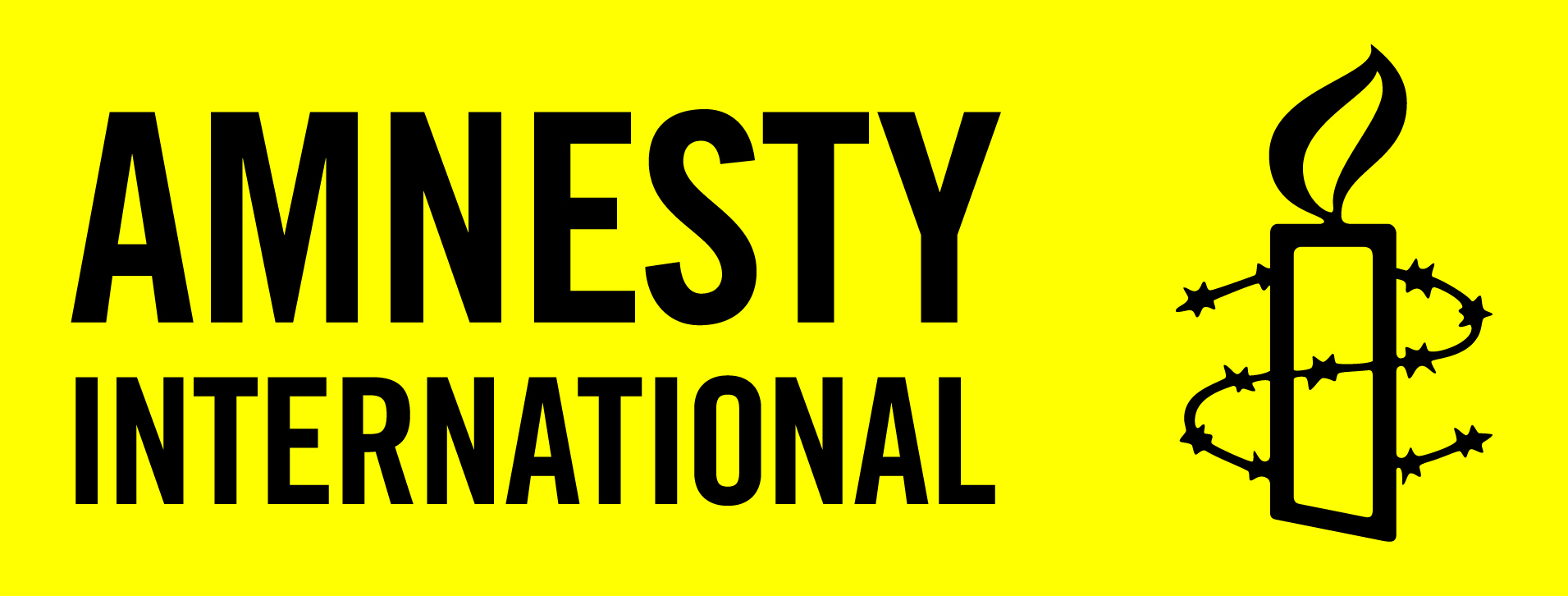
KATHMANDU, May 13: Amnesty International (AI) has urged governments across South Asia to immediately address healthcare shortages and urgently strengthen their healthcare systems to respond to the rapid surge of COVID-19 cases in the region.
With India and Nepal’s healthcare systems reaching the breaking point, the human rights organization expressed its concern over the lack of preparedness of other countries in the region for the virus’s latest and most deadly wave. Extremely low vaccination rates across South Asia have also left the region highly vulnerable, with pressing action needed at the global level to ensure more equitable access to vaccines.
“The human catastrophe that is unfolding in India and Nepal should be a warning to other countries in the region to invest heavily in surging capacity for emergency response. The virus is spreading and transcending borders at a frightening speed and will continue to hit the region’s most marginalized populations hardest of all,” a statement quoted Amnesty International’s Asia-Pacific Director Yamini Mishra as saying.
“We are at a critical point. Fewer than one in ten of the region’s population has been vaccinated. The decisions taken by governments in South Asia and across the world in the coming days and weeks will be crucial in mitigating the human cost of this latest surge,” she said.
South Asia, home to a quarter of the world’s population, is fast becoming the new global epicenter of the COVID-19 pandemic. On 6 May, India reported more than 400,000 new cases in one day, taking its total tally of confirmed cases to 21.5 million, though this is likely to be a significant underestimate. As the disease ravages India, several south Asian nations are also facing a resurgence of cases.
Nepal, which shares a porous border with India, has already started to experience a massive spike in infections. According to WHO figures, daily cases increased 30-fold from 303 to 9,317, or an increase of 2,975%, between 12 April and 12 May. On Tuesday, Nepal recorded another 9,317 cases, bringing its total to 413,111.
With India stopping export of oxygen, Nepal is struggling to find alternative supplies. To make matters worse, Nepal is also in the midst of political upheaval, with its Prime Minister having lost a vote of confidence and parties failing to form a government.
“We have seen how shortages of oxygen, hospital beds, human resources and essential medicines pushed the already under-resourced healthcare response of India over the edge. Now a similar worrying trend is emerging in Nepal,” Mishra said.
“This is not the time for Nepal’s politicians to indulge in political wrangling and infighting. What the country needs right now is unity and leadership to address the growing crisis,” she added.
After experiencing a second wave last year, Pakistan, Bangladesh, Afghanistan, and Sri Lanka are also witnessing a surge with infections picking up sharply. The new Indian variant of the coronavirus has been detected in Sri Lanka and Bangladesh, prompting authorities to close borders and ban travelers from India.
Bangladesh’s nationwide lockdown has struggled to limit public movement or contain the surge in daily infections, which rose to 7,200 in early April, its highest point in the pandemic, before beginning to reduce. The country’s health directorate has expressed concern that mass travel ahead of the upcoming Eid celebrations could lead to a resurgence of infections. Pakistan’s authorities have steadily tightened restrictions on travel in a bid to prevent a surge in COVID-19 cases during Eid. Meanwhile, the Afghan government has so far ignored the advice of its Ministry of Public Health to implement a lockdown.
Amnesty International has asked the governments in the region to strengthen surge capacity and protect the marginalized and ensure international cooperation for equitable access to vaccines.
You May Like This
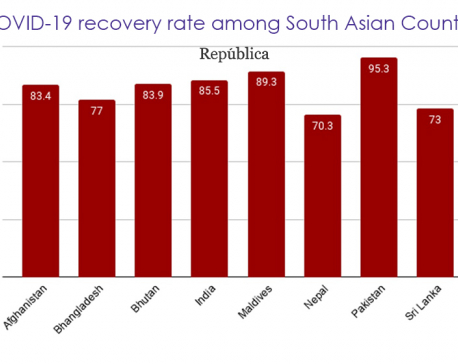
Nepal has lowest recovery rate and highest active case rate in South Asia
KATHMANDU, Oct 11: Of the eight countries in the South Asian Association for Regional Cooperation (SAARC), Nepal has the lowest... Read More...

Nepal records 111 cases, 415 recoveries and one death from COVID-19 on Sunday
KATHMANDU, Feb 27: Nepal recorded 111 new cases of COVID-19 along with 415 recoveries and one death from the deadly... Read More...
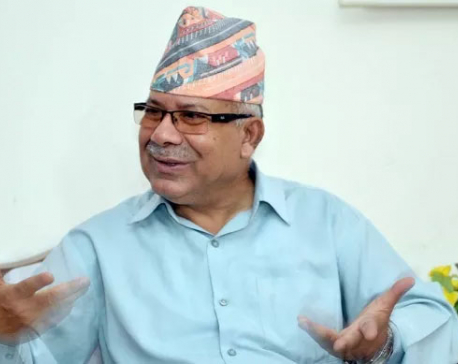
Party's name will be Nepal Communist Party after merger: Leader Nepal
KAILALI, Feb 9: CPN-UML leader Madhav Kumar Nepal said that the name of the new party after merger between CPN-UMLand... Read More...
Just In
- CPN (Unified Socialist) to hold its Central Committee meeting on May 10-11
- Over 16,000 paragliding flights conducted in one year in Pokhara
- MoPIT prepares draft of National Road Safety Act, proposes rescue within an hour of an accident
- Light rainfall likely in hilly areas of Koshi, Bagmati, Gandaki and Karnali provinces
- Customs revenue collection surpasses target at Tatopani border, Falls behind at Rasuwagadhi border in Q3
- Rain shocks: On the monsoon in 2024
- Govt receives 1,658 proposals for startup loans; Minimum of 50 points required for eligibility
- Unified Socialist leader Sodari appointed Sudurpaschim CM











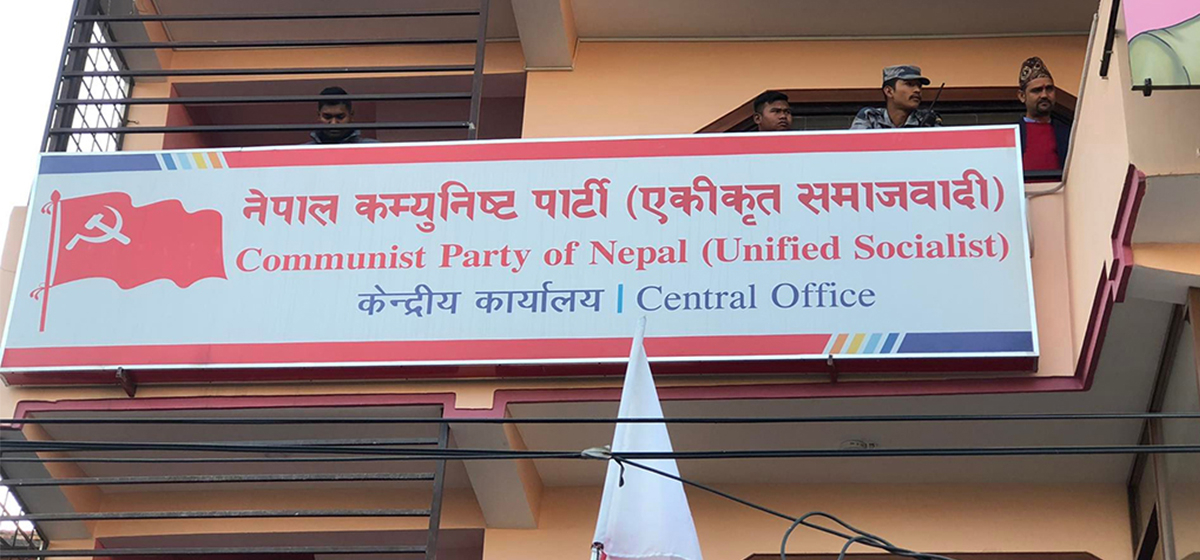
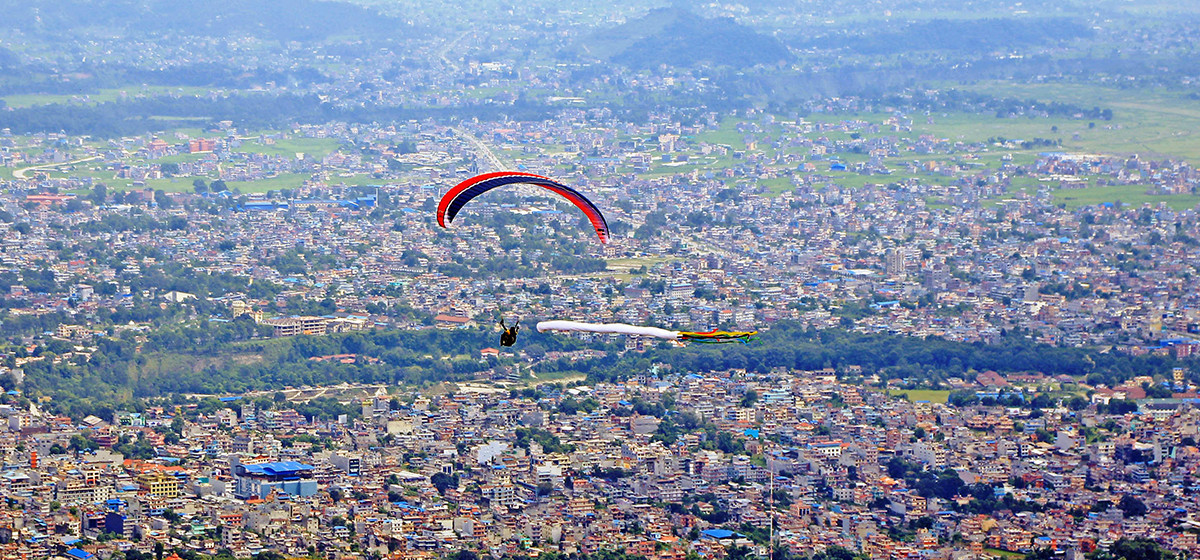
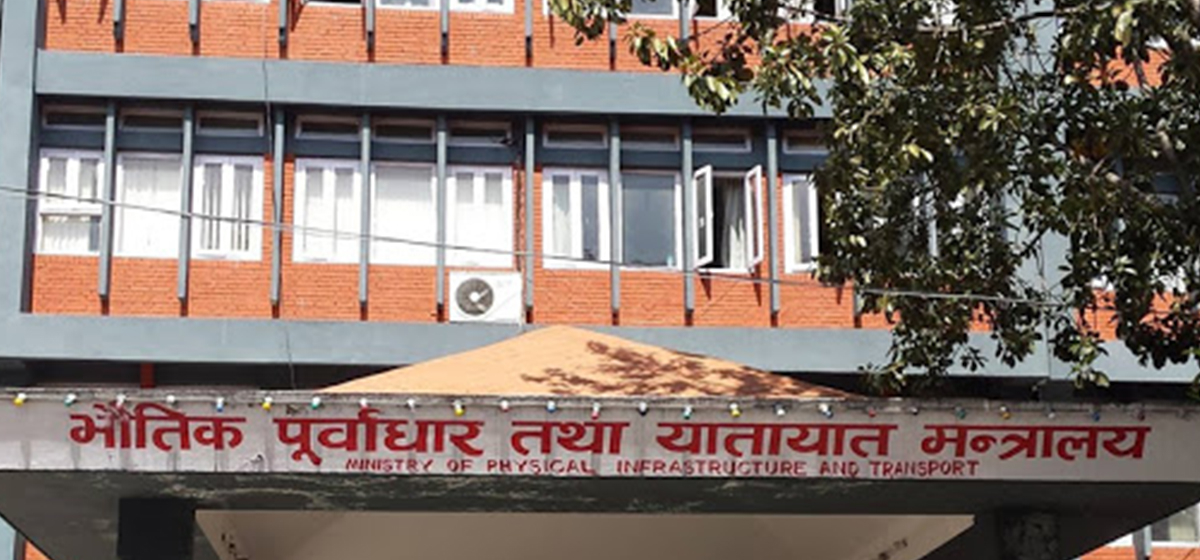





Leave A Comment